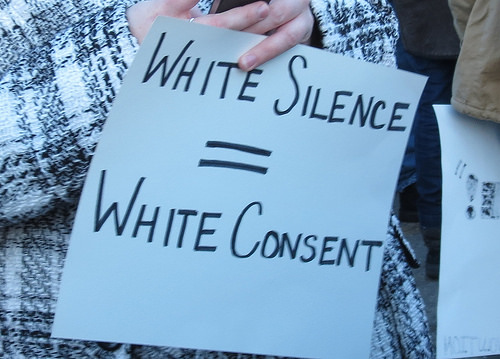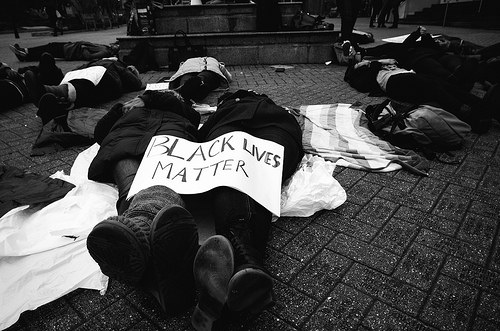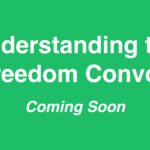The misunderstandings occur because people don’t always understand what the “other side” means. There’s a lot of context to #BlackLivesMatter. It started when George Zimmerman, who shot and killed Trayvon Martin, was acquitted. Tragically, shootings like this seem to happen several times per month, which has further angered supporters of the movement, and a lot of people who wouldn’t normally consider themselves to be part of a, or welcome in, a Black movement. Consequently, #BlackLivesMatter has come to mean a lot about the Black condition in the United States in particular, and elsewhere.

Photo by Rose Colored Photo 
Some people see #BlackLivesMatter (BLM) as an exclusionary term. It seems like it’s saying that only Black lives matter. Obviously, that would irritate all the non-Black races. And if #BlackLivesMatter was an exclusionary term, then #AllLivesMatter (ALM) would be an appropriate response. Since I’m not Black, that was my initial response when I heard the term for the very first time. But once I discovered the intended meaning of the term and the context in which it lived, my understanding grew and my response changed.
There is plenty of irony with this issue. Many ALM folks thought the BLM folks were exluding other races from concern. Many BLM folks thought the ALM folks were trying to demote the issues behind BLM. So both sides committed precisely the same mistake that they accused the other side of doing: They assumed that they knew what the others’ hashtag meant. This happens when we allow our emotions to govern our responses instead of trying to understand–and not assuming–why the other person has taken what seems to you like a perverse or outrageous viewpoint.
Another irony is that instead of BLM, the BLM folks could have picked ALM in the first place. The implication would have been that All Lives Matter, not just white ones. That works well and would have brought all races onside. It also would have removed the reaction that BLM is exclusionary. However, with emotions so high in the Black community, I think that it’s likely that specifically identifying Black lives was much more important to the movement than being inclusive.
Yet another irony is that a lot of people seem to think that yelling at someone will change that person’s viewpoint. On the contrary, if you want to change someone’s viewpoint, first you need to understand why they hold it. Only then can you form an approach to educate that person.
So, the next time you feel your rage bubbling to the surface when you read something, suppress it. It accomplishes very little. Instead, read carefully, try hard to understand, and then inform and educate. You’ll make the world a much better place.







Recent Comments